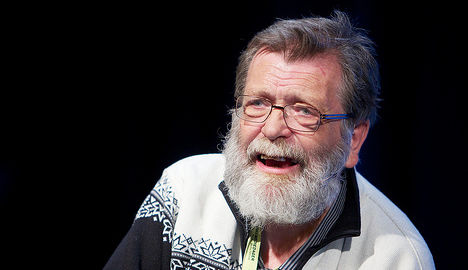HISTORY
Norway airs marathon ‘Slow TV’ history lecture
Norway's national television channel on Friday launched its latest "Slow TV" extravaganza, broadcasting a marathon 200-minute lecture on Norwegian history to mark the bicentenary of the country's constitution.
Published: 28 February 2014 22:24 CET

Professor Frank Aarebrot - Photo: Nordiske Mediadager
The lecture was delivered by Frank Aarebrot, a jocular and fast-talking politics professor from the University of Bergen.
"I am not sure if it should be called an academic marathon or a sprint," Aarebrot said before the lecture. "It will probably be a challenge to keep to the time."
Aarebrot took the Norwegian people decade-by-decade through the story of the country from 1814 until the present day.
Prime Minister Erna Solberg, a former student of Aarebrot's joked on Twitter that she doubted he could squeeze the material into the time.
"In my time, there were 10 lectures of 2×45 min, and he only reached the mid 1850s," she wrote on Twitter.
Norway's experimentation with Slow TV began in 2009 with centenary of the Bergen railway line.
Rather than commission a conventional feature programme on the line, NRK instead decided to stick a camera on a train and broadcast the entire seven-hour trip from Oslo to Bergen, interweaving the odd bit of archive footage to liven up the programme.
Remarkably, it was a roaring success, with 1.2 million viewers, nearly a quarter of the population of Norway, tuning in for at least part of the trip.
Since then, the network has broadcast a cruise journey, a fire being slowly built and burned, and most recently, the knitting of a jumper, starting with the original sheep.
"It's literally reality TV: something authentic that's shown in real time without being edited down," said Rune Møklebust, head of programs at NRK and the idea's main developer, told AFP.
Url copied to clipboard!


 Please whitelist us to continue reading.
Please whitelist us to continue reading.
Member comments